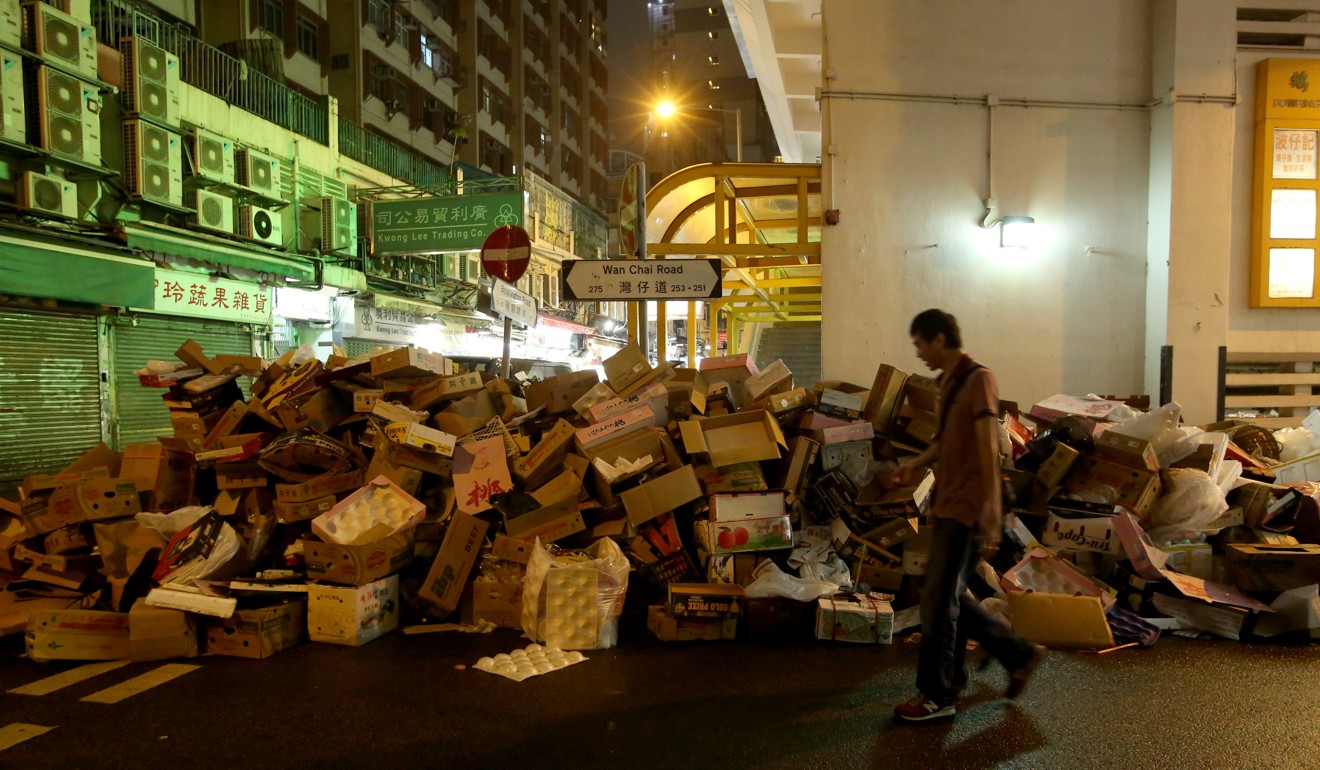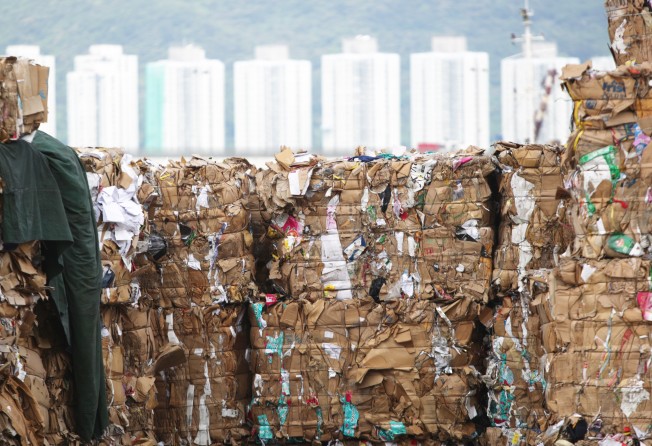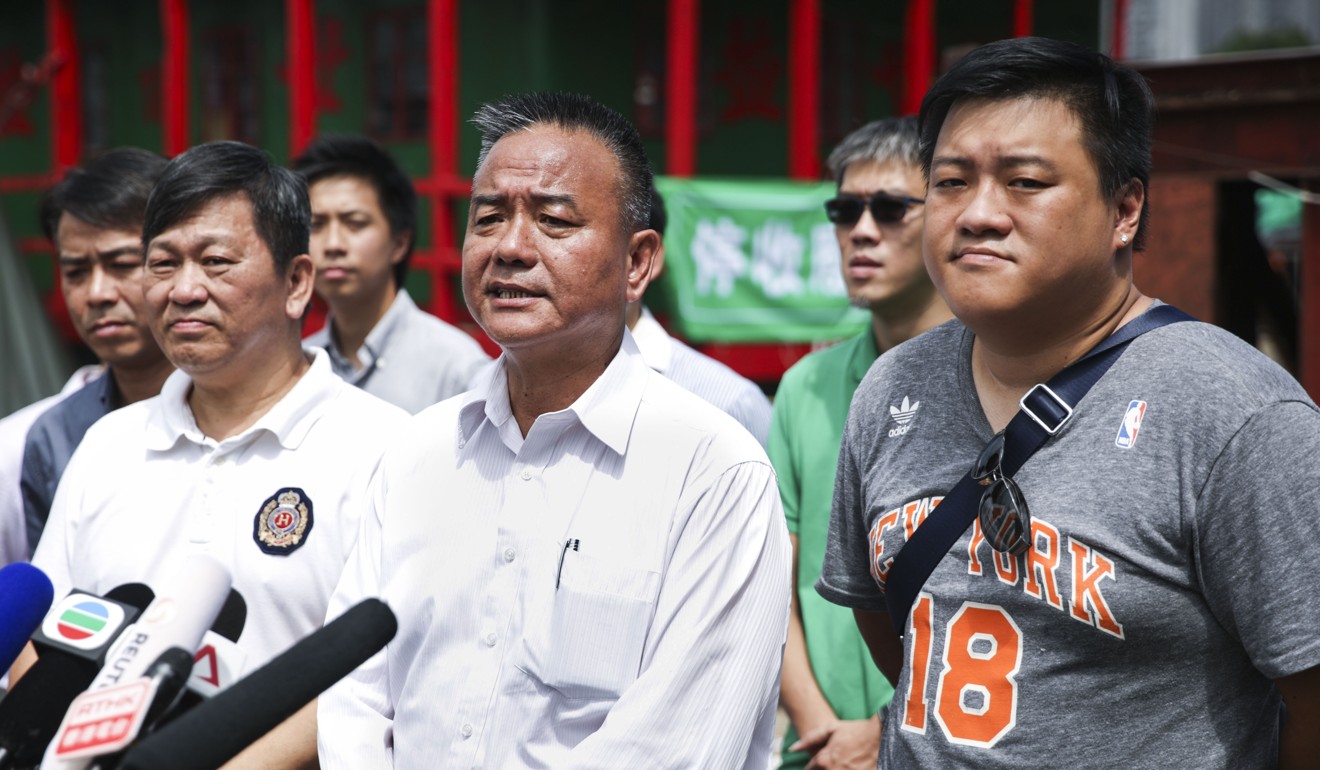
Expect more chaos over waste paper collection, Hong Kong recyclers against ‘unfair’ mainland import policy warn
City ships waste paper for processing across the border, but new rules pitting it against foreign importers may mean a local bottleneck of stocks

Waste paper recyclers in Hong Kong on Sunday warned of chaos if the city’s government did not help them fight for exemption from an “unfair” mainland policy regulating waste imports.
Jacky Lau Yiu-shing, director of the Recycle Materials and Re-production Business General Association, expressed fears that without long-term solutions, the city would continue to face regular logjams of unexported waste paper.
“At this rate, our assessment is that every two months there will be one case where Hong Kong shipments cannot be moved because once permit quotas are used up, we must wait ... for the [next batch],” Lau said on RTHK programme City Forum. “The situation is a bit chaotic.”
The mainland government began tightening waste import regulations last year, pledging to ban 24 types of polluting “foreign rubbish” including unsorted waste paper and consumer plastic waste from this year.
The move sent shock waves through Hong Kong’s waste recovery industry.
Some 80,000 tonnes of waste paper are collected in the city each month. Almost all of it is exported across the border because of Hong Kong’s lack of processing capacity.

Mainland waste paper imports – and the permits allocated to recycling plants there – have dropped by 85 per cent since the announcement.
On Sunday, Lau said the latest batch of permits had not been issued yet but would probably arrive around the end of the month.
“The industry will keep collecting and exporting what we can, but what can’t be shipped must be stored at docks and on barges ... this is not a long-term solution,” he said.
Lau said the problem was that US, European and Japanese exporters with much larger volumes – about 300,000 to 400,000 tonnes monthly – were prioritised, leaving those from Hong Kong sidelined.
“China treats [Hong Kong and Macau] as territories outside its borders. I agree we should compete with others but right now it’s unfair. European and US exporters have government subsidies and support,” Lau said.
China treats [Hong Kong and Macau] as territories outside its borders. I agree we should compete with others but right now it’s unfair
Speaking on the same programme, Wong Hon-meng, the government’s assistant director for environmental protection, said the mainland’s new regulations were aimed at improving the quality of recyclables. He argued that the permit system would still be feasible for the city.
“They are not raising the standards to single out Hong Kong. This applies to the whole world.”
Wong said there was still enough capacity from permits allocated to the biggest mainland importers in January and February to absorb the city’s stocks. “The capacity to take in Hong Kong imports of waste paper is sufficient.”
Edwin Lau Che-feng, executive director at environmental group The Green Earth said the city needed to find other ways to reduce waste by developing means of reuse or converting trash into raw materials.
“Whether quotas are enough or not, as a responsible city, we should be finding solutions to deal with our own waste and not always think about how to ship it to other places,” he said.

But Lau said applying alternative procedures to all types of waste would not be cost effective.
“The problem is that Hong Kong cannot accommodate so much space and factories to [process waste paper],” he said. “We must face the fact that we have no more downstream industry in Hong Kong.”
The city experienced a mini crisis last September after about 1,000 recycling plants across the mainland failed to get permits to import foreign waste, causing a jam of shipment volumes in Hong Kong. Recyclers and waste exporters, led by Lau, initiated a three-day strike to stop collecting waste paper across Hong Kong, to put pressure on the government.
The industrial action, originally planned to last a week, ended after protesters said they had made their point and authorities agreed to give them more space for temporary storage.